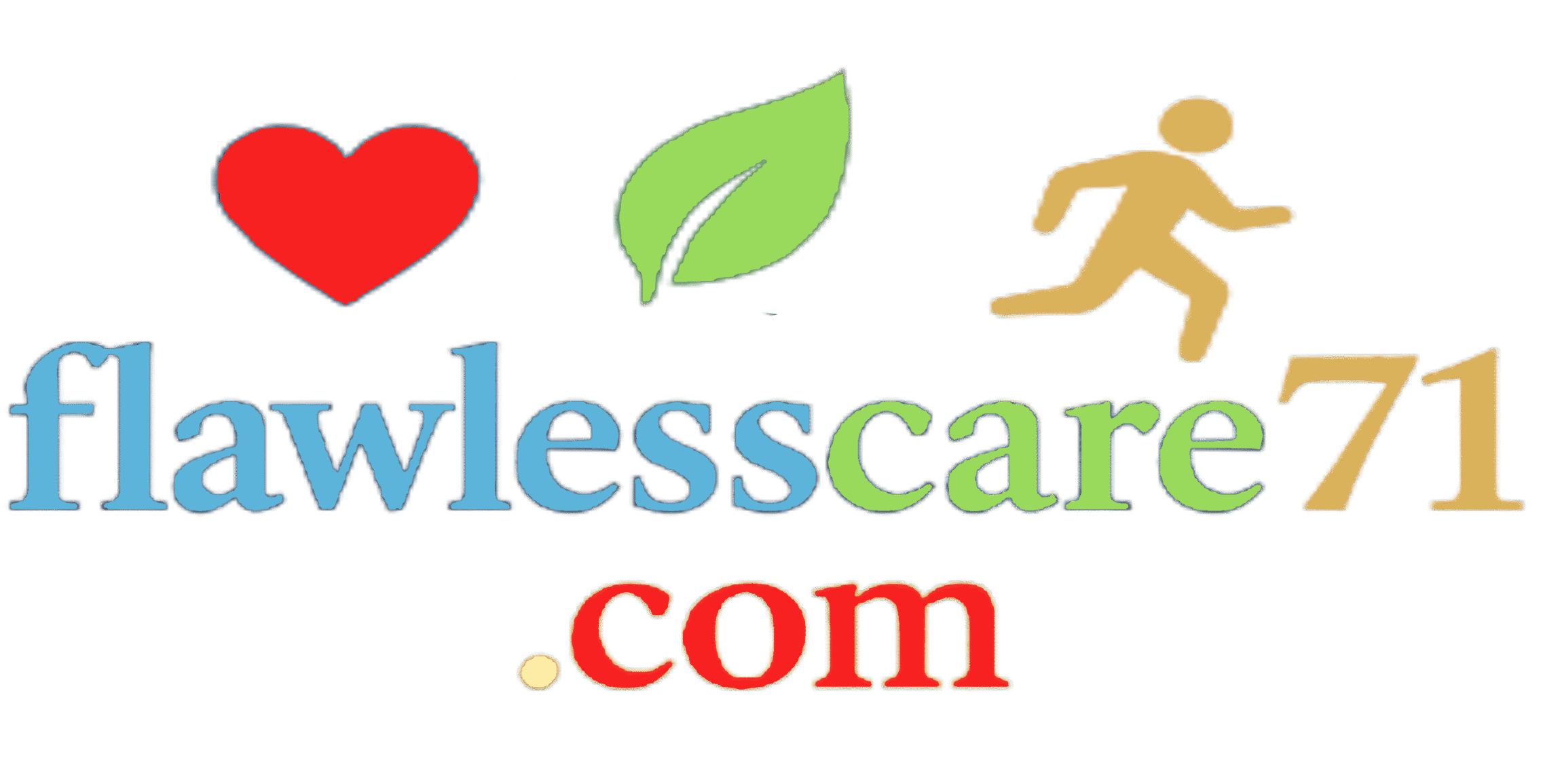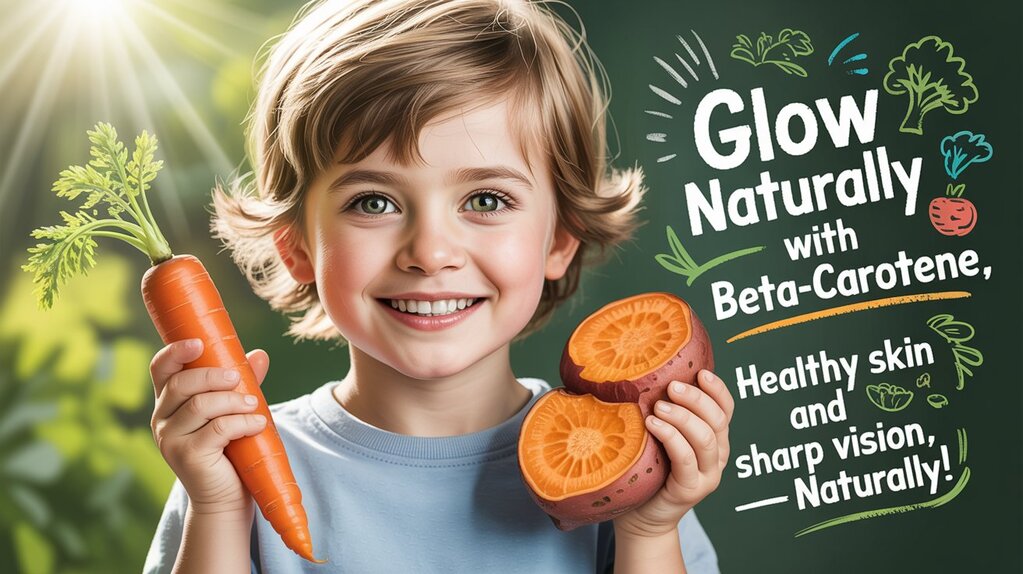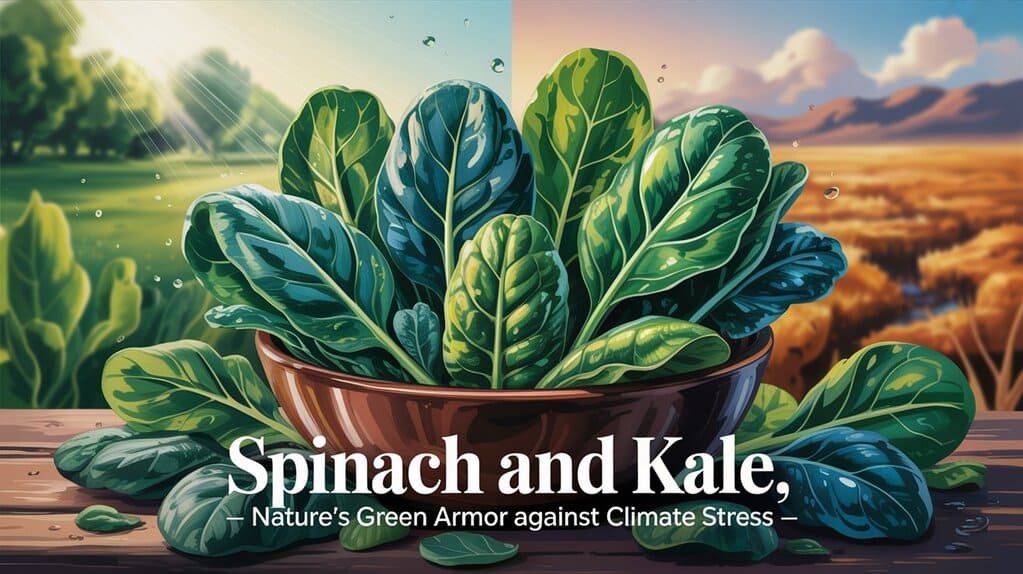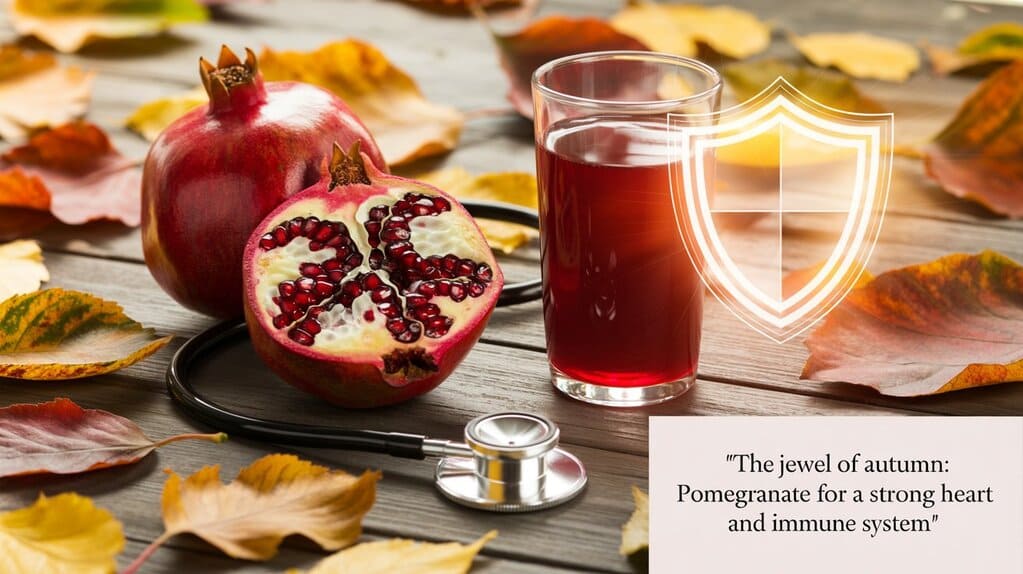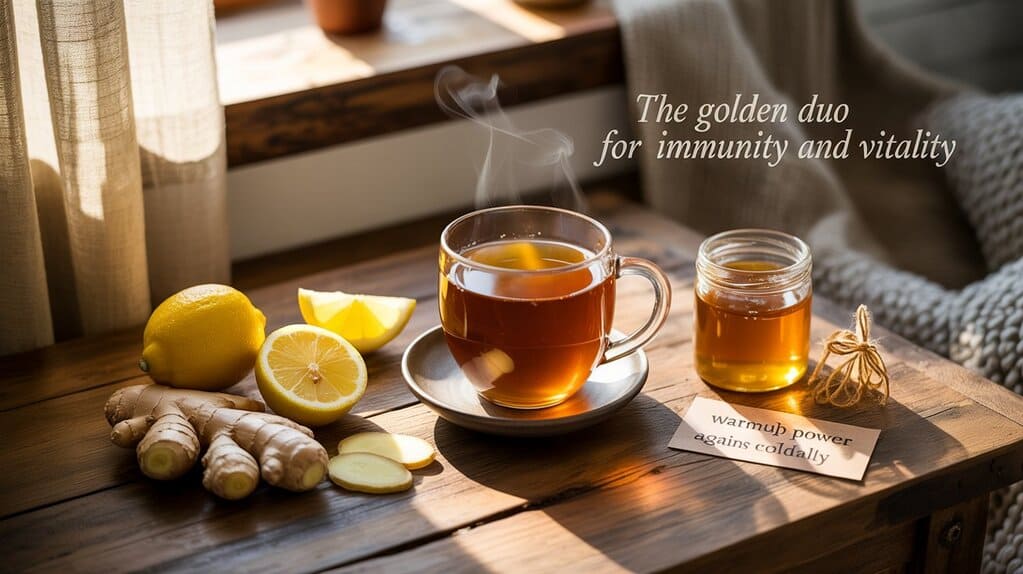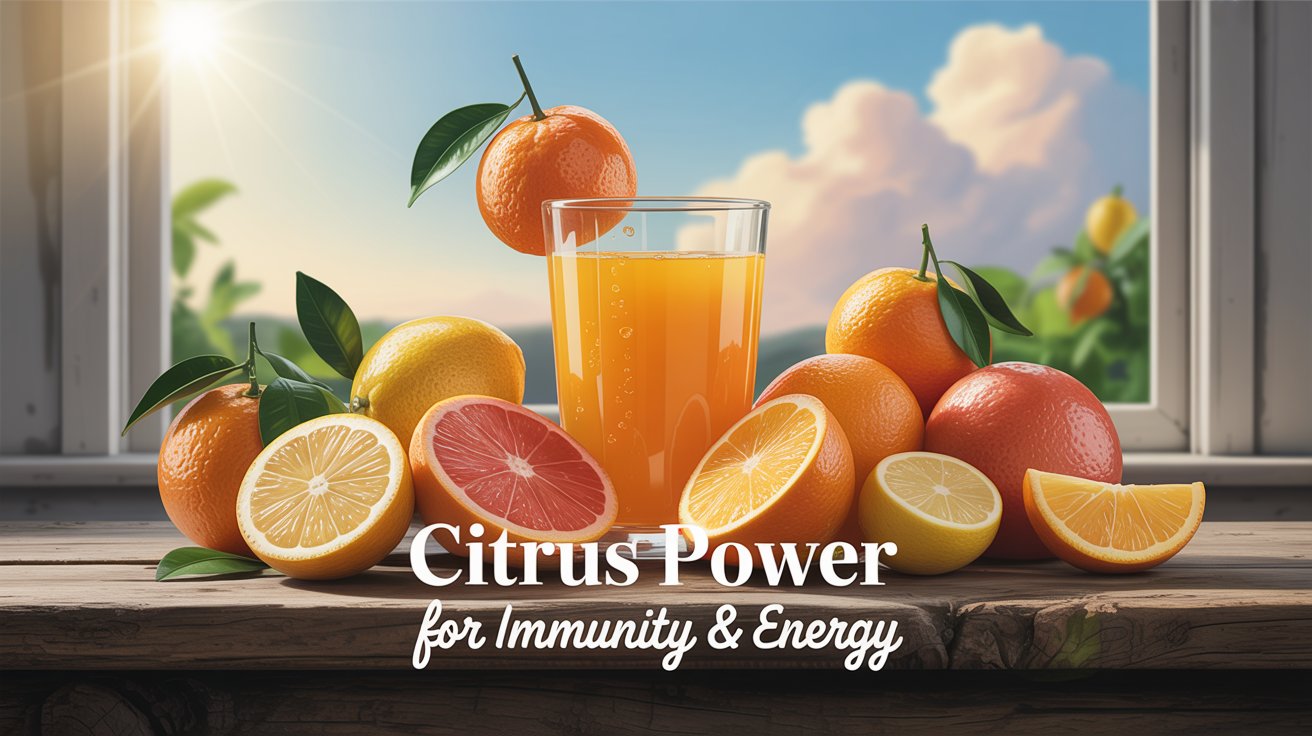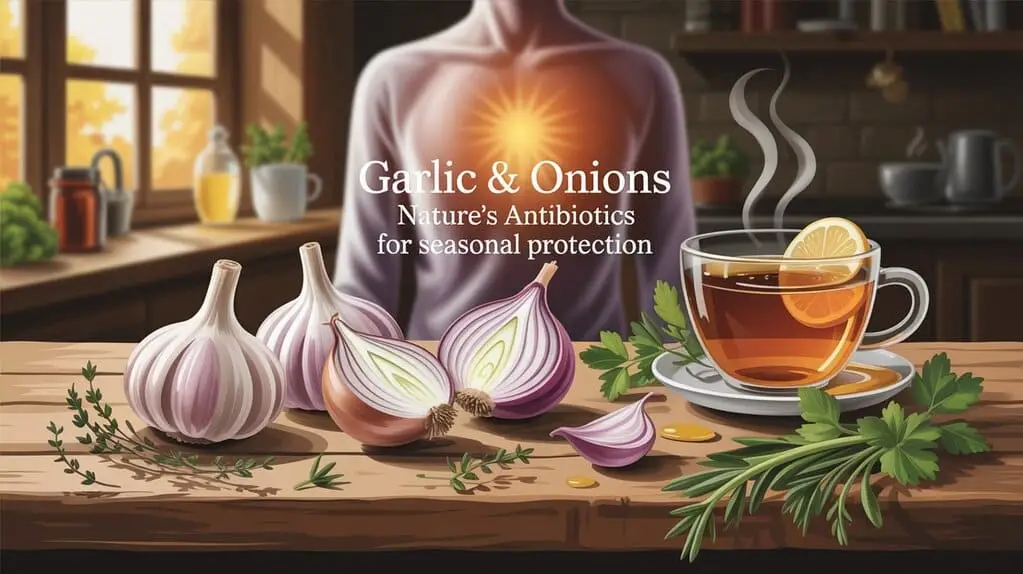
Introduction
Every year when the weather shifts—cooler nights, damp mornings—seasonal illnesses such as the common cold, influenza, and other respiratory infections start circulating. For centuries, people across Asia, Europe and the Americas have turned to two humble kitchen allies—garlic (Allium sativum) and onion (Allium cepa)—for protection, relief, and recovery. Modern science has confirmed that these plants contain potent bioactive compounds with antibacterial, antiviral, anti-inflammatory, and immune-modulating effects. While neither garlic nor onion replaces prescribed medication when needed, research shows they can be useful natural antibiotics and immune-supportive foods to reduce the risk or severity of seasonal diseases when used sensibly. PMC+1
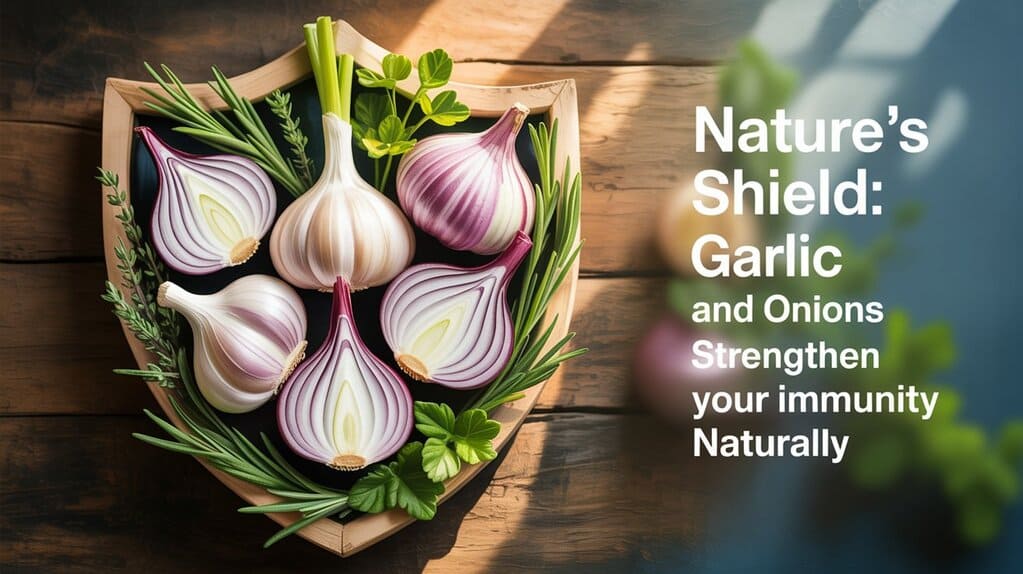
Body
How garlic and onions work — the science in a nutshell
Garlic’s standout compound is allicin, produced when garlic is crushed or chopped. Allicin and other organosulfur compounds (vinyldithiins, diallyl sulfides) show broad in vitro antibacterial and antiviral activity by disrupting microbial cell membranes, inhibiting key enzymes, and interfering with microbial signaling. Multiple laboratory and preclinical studies have documented these effects. PMC+1
Onions are rich in flavonoids (notably quercetin) and sulfur-containing compounds. Quercetin shows antioxidant, anti-inflammatory, and antimicrobial effects, and may stabilize immune responses that otherwise make viral respiratory illnesses worse. Several reviews summarize the biochemical pathways by which onion constituents reduce oxidative stress and modulate inflammation. PMC+1
Most load-bearing clinical finding: while laboratory work is strong, high-quality clinical trials in humans are limited and mixed. For example, a Cochrane review concluded there’s insufficient robust clinical-trial evidence to definitively state garlic prevents or treats the common cold, though some individual trials suggested benefits for prevention or symptom severity. Another randomized trial found aged garlic extract reduced severity of colds in adults. These are promising but not definitive. cochranelibrary.com+1
Key bioactive compounds (quick reference table)
| Plant | Major bioactives | Primary mechanisms (lab evidence) | Typical uses |
|---|---|---|---|
| Garlic (Allium sativum) | Allicin, diallyl sulfide, ajoene | Antibacterial, antiviral, antifungal; enzyme inhibition; membrane disruption. | Dietary raw/cooked garlic, aged garlic extract, topical poultices (historical), mouthwash formulations (research). PMC+1 |
| Onion (Allium cepa) | Quercetin, flavonoids, sulfur compounds | Antioxidant, anti-inflammatory, antimicrobial, immune modulation. | Raw/cooked onions, onion extracts, quercetin supplements (as studied). PMC+1 |
(Table sources: systematic reviews and biochemical studies.) PMC+1
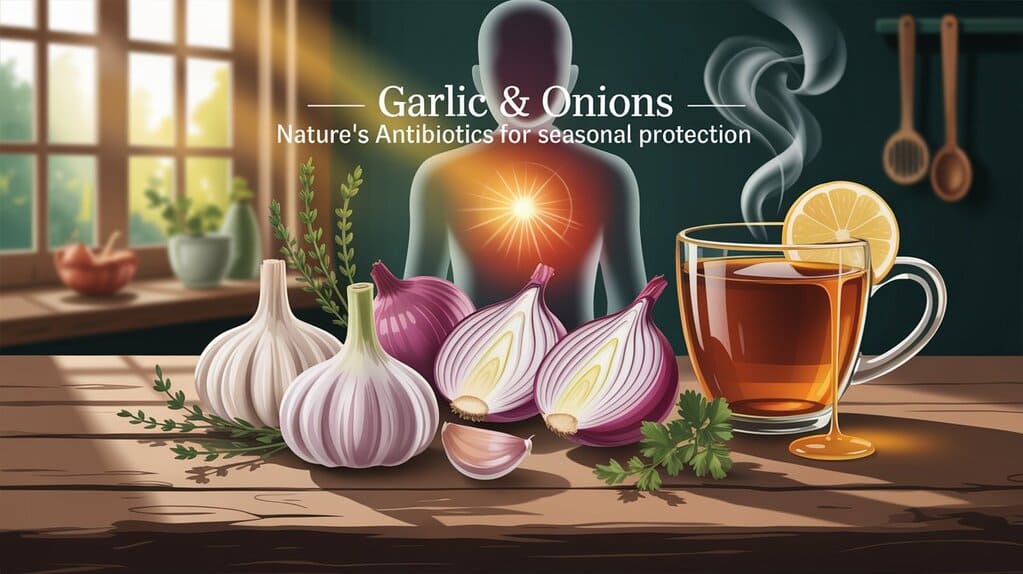
Evidence from clinical and translational studies
Garlic — human trials and reviews
- Prevention of colds: A randomized trial of garlic supplements suggested fewer colds in the garlic group, though sample sizes are small. A Cochrane review (systematic review of RCTs) concluded evidence is insufficient to make a firm recommendation but noted potential prophylactic benefit that merits more research. Another RCT using aged garlic extract reported reductions in the severity of cold symptoms, and trials also showed immune-modulating effects such as changes in inflammatory markers. cochranelibrary.com+2ScienceDirect+2
- Antimicrobial mouthwash and oral health: Recent clinical studies have tested garlic extract mouthwashes and reported antimicrobial and antibiofilm activity comparable in some settings to standard agents (e.g., chlorhexidine) at specific concentrations — this is an active area of clinical research. ScienceDirect+1
Onion — translational and preclinical findings
- Quercetin and respiratory infections: Quercetin is studied for its antiviral and immune-stabilizing properties; some studies suggest it may lower the incidence or severity of upper respiratory tract infections in certain populations, though large-scale clinical data are limited. Onion extracts show anti-inflammatory actions in animal and cell studies that are relevant to reducing symptom severity during seasonal respiratory illnesses. PMC+1
Antiviral potential (including SARS-CoV-2)
- Several lab studies reported that allicin and other garlic-derived compounds reduced viral replication in cell culture models — including preliminary data on SARS-CoV-2. These in vitro antiviral effects suggest possible mechanisms but do not prove clinical efficacy in humans without controlled trials. Always treat in vitro antiviral claims as a starting point for clinical research. Frontiers+1
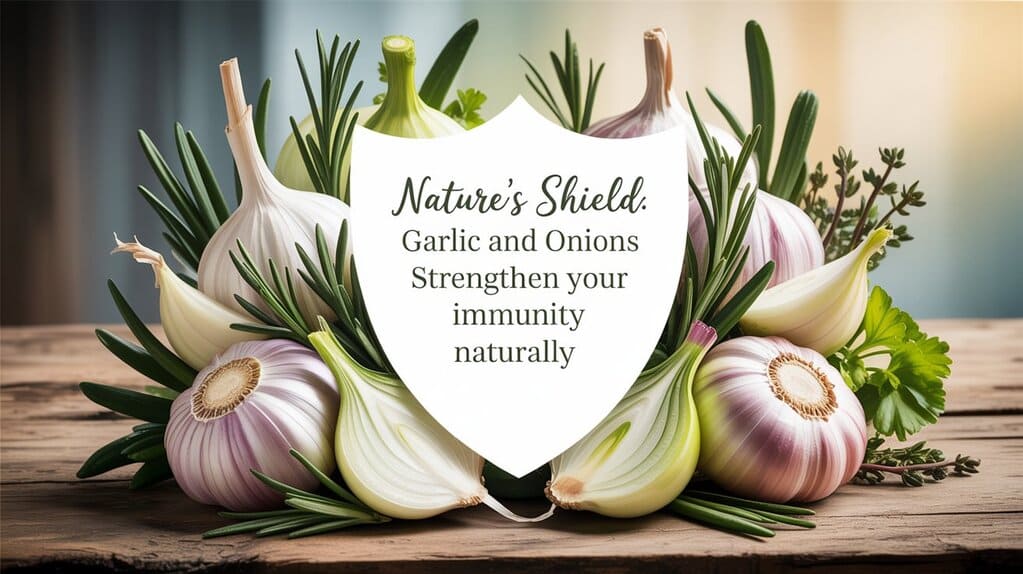
Practical, evidence-based recommendations for seasonal protection
- Include garlic and onion in your diet regularly. Use crushed raw garlic (allow to rest 5–10 minutes after crushing to form allicin) and cooked onion in meals to maximize flavor and exposure to bioactives. Culinary use provides a safe, food-based way to access these compounds.
- Consider aged garlic extract supplements if you want a standardized formulation studied in trials (follow product dosing instructions and consult a healthcare provider). Some trials used aged garlic extracts to modulate immune markers and symptom severity. ScienceDirect
- For oral health, topical preparations (garlic mouthwash studied experimentally) may offer antimicrobial benefits—again, only under guidance and not as a replacement for dental care. ScienceDirect
- Be aware of drug interactions and contraindications. Garlic can interact with anticoagulant drugs (blood thinners), and high amounts may cause gastrointestinal upset or allergic responses. People preparing for surgery should avoid high-dose garlic supplements; ask your physician if you take prescription medications. (Clinical reviews and product safety notes underline these cautions.) PMC+1
SEO-friendly key points (bolded keywords & phrases)
- Natural antibiotics: garlic and onions contain allicin and quercetin, compounds with laboratory-proven antibacterial and antiviral activity. PMC+1
- Immune support: aged garlic extract and onion flavonoids show immune-modulating effects that may reduce symptom severity in respiratory infections. ScienceDirect+1
- Seasonal illnesses: regular dietary use of garlic and onion can be part of a broader strategy to reduce risk and severity of common cold and influenza. cochranelibrary.com
- Antimicrobial mouthwash research: garlic extracts have been compared to chlorhexidine in dental research with promising antimicrobial and antibiofilm results. BioMed Central
- Safety first: consult a medical professional about drug interactions (e.g., blood thinners) and use supplements only as directed. PMC
Small illustration (text diagram) — How to make a simple immune-support garlic preparation
- Crush 1 clove of fresh garlic, let it rest 5–10 minutes to form allicin.
- Mix into warm (not boiling) olive oil or add to salads, soups, or yogurt-based dips.
- Combine with raw or lightly cooked onions and vitamin-C rich foods (citrus, bell peppers) for complementary immune nutrients.
Note: This is a culinary suggestion, not a medical prescription.
Conclusion
Garlic and onions are more than flavoring agents — they are functional foods with a growing base of laboratory and clinical evidence supporting their antimicrobial, antiviral, anti-inflammatory, and immune-supporting properties. Laboratory research strongly supports the antibacterial roles of allicin and organosulfur compounds in garlic and the antioxidant/anti-inflammatory effects of quercetin and related flavonoids in onions. Clinical data in humans are promising but not yet conclusive: some randomized trials and systematic reviews suggest garlic, especially aged garlic extract, may reduce the severity or frequency of seasonal respiratory illnesses, but larger, high-quality trials are still needed. PMC+2cochranelibrary.com+2
For practical seasonal protection, include garlic and onion regularly in your diet, consider standardized aged garlic extracts if appropriate, and always consult your healthcare provider when using concentrated supplements—especially if you take anticoagulants, have bleeding disorders, are pregnant, or are preparing for surgery. Used sensibly, these natural antibiotics from the kitchen can be a safe, delicious, and evidence-informed component of your seasonal health plan.
Key points (summary)
- Garlic (allicin) and onion (quercetin) contain compounds with antibacterial and antiviral properties. PMC+1
- Clinical evidence for human benefit is promising but mixed; more RCTs are required. cochranelibrary.com
- Aged garlic extract has the most consistent clinical trial data for immune modulation and symptom reduction. ScienceDirect
- Garlic and onion may interact with medications—consult a physician before using high-dose supplements. PMC
References (select scientific and reputable sources)
- Bhatwalkar SB, et al. Antibacterial Properties of Organosulfur Compounds of Garlic. 2021. PMC. PMC
- Choo S, et al. Review: antimicrobial properties of allicin used alone or in combination. 2020. PubMed. PubMed
- Lissiman E., Bhasale A., Brown R. Garlic for the common cold. Cochrane Database/Systematic Review; 2014 (updated). PMC. PMC+1
- Mösbauer K., et al. The Effect of Allicin on the Proteome of SARS-CoV-2 Infected Cells. Frontiers in Microbiology, 2021. Frontiers
- Xu C., et al. Aged garlic extract supplementation modifies inflammation and immunity in adults with obesity: randomized trial. 2018. ScienceDirect summary. ScienceDirect
- Chakraborty AJ., et al. Allium cepa: A Treasure of Bioactive Phytochemicals with Therapeutic Potential. 2022. PMC. PMC
- Nguyen TLA., et al. Antimicrobial Activity of Quercetin: An Approach to Its Application. 2022. PMC. PMC
- Nakamoto M., et al. Antimicrobial properties of hydrophobic compounds in garlic. 2019. PMC. PMC
- Melguizo-Rodríguez L., et al. Biological properties and therapeutic applications of garlic. 2022. RSC Food & Function. RSC Publishing
- Recent clinical trials and reviews on garlic and oral health; BMC Complementary Medicine (2025), ScienceDirect (2025). BioMed Central+1
